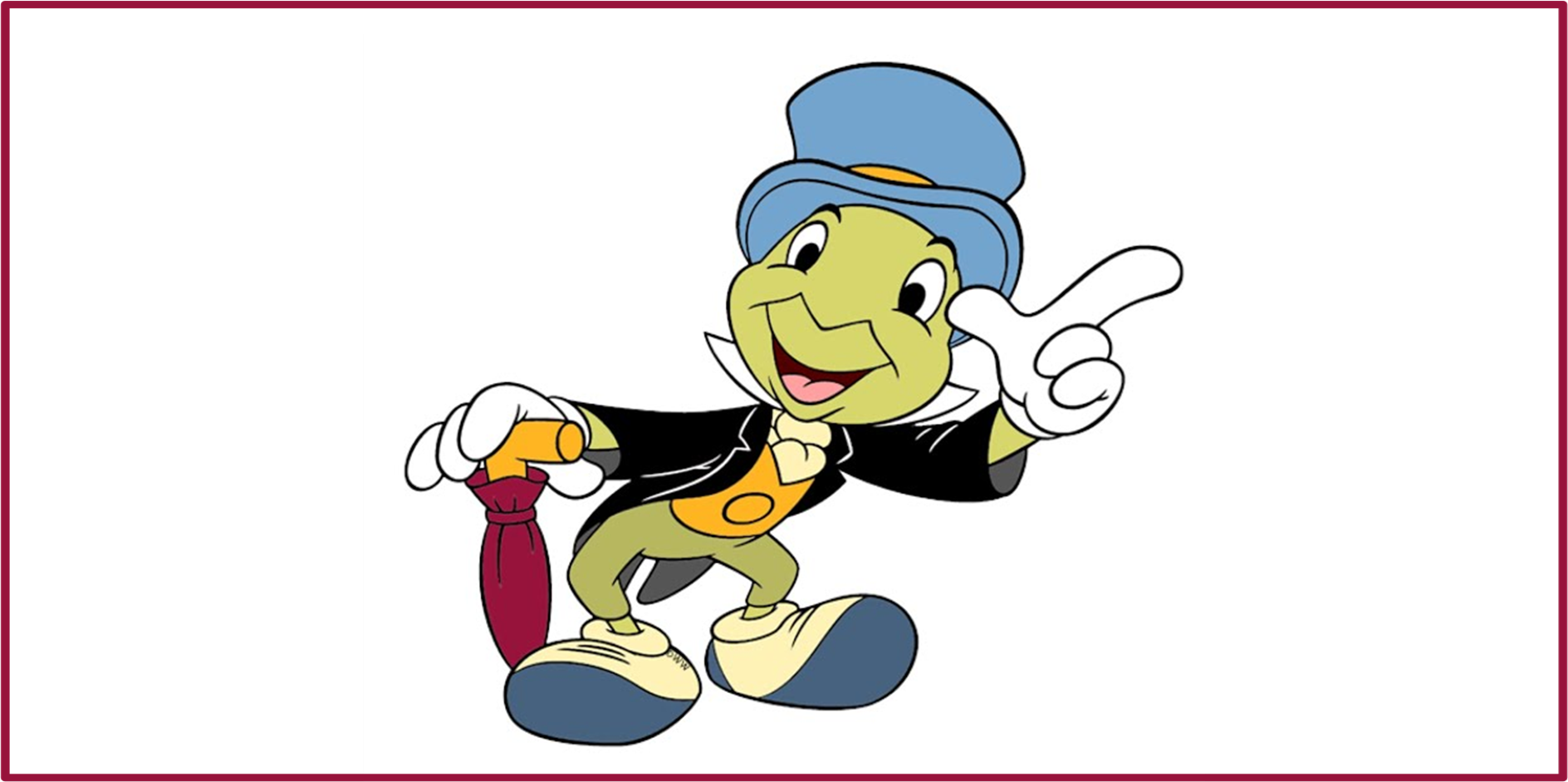“Always Let Your Conscience be Your Guide,” Jiminy Cricket tells Pinocchio in the Walt Disney version of the children’s classic. I can’t speak for Pinocchio, but my conscience can be a pretty lousy guide as it leads me not to being a real boy or a better person but to chasms of guilt and swamps of discouragement.
A couple of weeks ago I had what might be called a difficult conversation with a colleague. I challenged him regarding attitude and behavior that I and others in our organization were finding harmful to relationships and to our common work. Prior to the conversation I sought the advice of some wise counselors who were familiar with the situation and who know me well. They deemed the conversation difficult, but necessary.
I don’t like difficult conversations and tend to steer clear of them until I have exhausted all avenues of avoidance. But sometimes you can no longer postpone the inevitable.
So, the conversation was had. I think I kept to the words I wanted to use and to a tone not excessively anxious or at all angry. My colleague did not respond all that well and later accused me of malice and false witness. Again, my wise counselors were helpful, asking tough questions and offering reassuring reflections.
I tell this story not to present myself as a paradigm of virtue or a martyr to the cause of goodness, but to give thanks for friends who speak the truth in love – and to wonder about Jiminy Cricket’s advice to Pinnochio.
Since my difficult conversation I have been less thankful for good friends and wise advice than I have felt guilty for bringing hurt and uncertainty into the life of my colleague. My conscience has not been my friend. Could this be what the old hymn means as it sings of those times “when Satan tempts me to despair and tells me of the guilt within”?
Why do I feel so guilty and so discouraged if the difficult conversation was what needed to take place? Why do my colleague’s accusations sting so much?
The Apostle Paul speaks of the testimony of a good conscience bearing witness with the Spirit to a pure heart and deep love (Romans 9:11 Timothy 1:5). He also tells of a weak and defiled conscience leading to poor decisions, bad practices, and sin against Christ (1 Corinthians 8:7-13).
Calvin, while affirming the sometimes-righteous witness of the conscience, nevertheless writes of conscience “constrained by the proofs of its impotence, (falling straightaway) into deep despair of its own powers.” (Institutes 2.viii.3).
I’d like to think that I am capable of navigating the troubled waters of strained relationships and organizational tensions all on my own. But I need God’s help, and it is more likely to come through the wise counselors God has placed into my life than from a conscience prone to falling into deep despair of its own powers.

